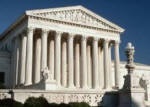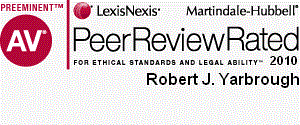Newsletter Issue 74 - April 2015
In this issue:
Protecting band names
Trademark Trial and Appeal Board
Google's patent purchase plan
Ask Dr. Copyright ...
Dear Doc:
A lawyer friend told me that I should copyright the name of my band,
The Miseracordions, so that when I make it big (this polka thing is
REALLY gonna take off soon!) I can keep other people from using the
name. Apart from our music, that just doesn't sound right. What's
up?
"Weird" Bob Shovovic
Dear Bob:
Leaving far aside my love of polka played on the accordion (the Doc
once spent a weekend in a hotel in Hohokus, NJ where the national
accordion championships were being held, and now, any time he hears
"Lady of Spain" he suffers from symptoms of PTSD), your lawyer
friend is slightly confused, as are most normal people - those who
do not practice intellectual property law. The Doc is, however, here
to clear things up.
Copyright is a federal law that protects forms of expression. The
music that you play (if you can call it that, as I did listen to the
demo 8-track that you so kindly sent in with your letter) is
protected by copyright when you write it down or record it (the law
says that you need to "fix it" in a "tangible medium" - but don't
take your songs to a veterinarian). Copyright doesn't protect things
like band names, book titles, advertising slogans, and other short
phrases or words. When these things are used commercially to denote
a product or service, then trademark law steps in to protect the
owners' rights.
A trademark (or a service mark) is a descriptive element that
denotes the source of goods or services to consumers. Trademarks can
be words, such as a product name, but they can also be designs like
logos, colors, shapes, sounds, or anything that uniquely identifies
the source of the thing. Famous examples of some of these are
made-up words, like "Kodak" (some think that it is an onomatopoetic
(look it up) word for the sound an old camera shutter made when you
snapped a photo), the color pink for fiberglass insulation (it
doesn't naturally come that color - Owens Corning sprays dye on the
sickly yellow stuff), the golden (well, yellow, actually) arches,
the "wasp waist" shape of a Coca Cola bottle... the Doc could go on
like this for hours...
Your band name could be registered in the United States Patent and
Trademark Office under the Lanham Act, as a service mark (after all,
playing music is a service) and as a trademark (don't ask me why
it's two words for service and one word for trade - the Doc doesn't
know everything) that denotes those 8-tracks you sell after every
bar mitzvah (even the ones where you don't play, for reasons that
escape me.) You also have the choice to register your mark in each
state (since you only get to register federally if you offer your
goods or services in interstate commerce - meaning that either you
or your tapes cross at least one state line.)
Clearly (or maybe not so) there is a lot to know about protecting
trademarks. At the risk of sounding too commercial (something of
which your band will never be accused) you should consult the
attorneys at LW&H. They can advise you on how to protect your marks,
your music, your Internet domain name, and many other things (but,
sadly, not your reputation, now that you have played an accordion in
public.)
Until next month... keep on dancin'
The Doc
P.S. - To the eagle-eyed readers who pointed out the errors in last
month's column - I salute you, as the French Knight did to King
Arthur in my favorite comedy movie, "Monty Python and the Holy
Grail”.
Trademark Trial and Appeal Board Decisions Assume New Importance
Says the U.S. Supreme Court! 
Back in January, we were so bold as to state that "it's not very
often that the United States Supreme Court decides a trademark
issue..." Well, it appears that Supreme Court pronouncements in the
trademark field are more common than we thought, at least this year.
On March 24, 2015, the U.S. Supreme Court, in B&B Hardware, Inc. vs.
Hargis Industries, Inc., held that decisions of the Trademark Trial
& Appeal Board ("TTAB") on the issue of likelihood of confusion may
be binding on the federal court in the same case if it is appealed.
This is referred to as "issue preclusion." For those who don't
know, the TTAB is the administrative tribunal of the United State
Patent and Trademark Office, which hears appeals and other matters
involving the registerability of trademarks. Its decisions may be
appealed to federal court. Yes, this is technical, but the case is
very important for parties who are paying lawyers to litigate before
the TTAB and often relitigating the same issues on appeal to federal
court. So, what happened in the B&B Hardware Case?It's a long convoluted story but, fortunately, many of the details are not relevant here. In 1997, B&B Hardware, a manufacturer of fastening products in the aerospace field and owner of the SEALTIGHT trademark, filed a TTAB opposition action against Hargis who was attempting to register SEALTITE for fastening products in the construction industry. B&B argued that the registration would create confusion in the marketplace with their trademark. The TTAB agreed and, after examining the legal factors along with the evidence presented by the parties, concluded that the applied-for trademark would create a likelihood of confusion. Hargis appealed to the federal district court, which rejected B&B's urging that the TTAB decision be given preclusive effect. Undeterred, B&B appealed to the federal Circuit Court of Appeals, which affirmed the district court, writing that differences in the standards and burden of proof between the TTAB and court did not warrant issue preclusion. Still undeterred, B&B appealed to the U.S. Supreme Court, which reversed the lower courts, holding that "the court should give preclusive effect to TTAB decisions if the ordinary elements of issue preclusion are met." The Court cautioned that both tribunals must be considering the same issues:
If a mark owner uses its mark in ways that are materially the same as the usages included in its registration application, then the TTAB is deciding the same likelihood-of-confusion issue as a district court in infringement litigation. By contrast, if a mark owner uses its mark in ways that are materially unlike the usages in its application, then the TTAB is not deciding the same issue. Thus, if the TTAB does not consider the marketplace usage of the parties' marks, the TTAB's decision should "have no later preclusive effect in a suit where actual usage in the marketplace is the paramount issue."...
On its face, one of the implications of the the B&B Hardware decision is that litigants may save resources by not having to re-litigate "likelihood of confusion" issues in federal court. The counter-argument is that litigants may actually spend more money and resources in TTAB proceedings knowing that the administrative judge's decision may preclude the federal court from deciding the issue again. On the other hand, the TTAB, in view of its limited jurisdiction, may not be the tribunal a litigant wants to make such decisions and, therefore, it may opt to bypass the TTAB process altogether. B&B Hardware has made these decisions more difficult and raises the level of uncertainty in the outcome. There has been much written about B&B Hardware and the strategic questions it raises so lawyers will continue to monitor its aftermath.
Want to
sell your patent?
Google is running what it calls a
'patent purchase promotion.'
From May 8 through May 22, 2015, you can offer to sell your issued
U.S. patent to Google. You must provide the patent number, contact
information and a take-it-or-leave-it price along with the
submission contract. Google will let you know if it is interested
by June 26. You agree not to sell your patent to anyone else prior
to that date. If Google is interested, then it will perform
additional due diligence and you agree not to sell your patent to
others through July 15. If Google is satisfied by its due diligence
and wants to buy the patent, then it will complete the deal by
mid-July and complete payment by mid-August. That's quick.
Google is only interested in buying issued U.S. utility patents. It
is not interested in pending applications, expired patents, foreign
patents or design patents. It is only interested in outright sale
and not in licensing of patents. Although the Google solicitation
does not limit submissions to any particular field of technology, we
expect that inventions related to its businesses are of the most
interest to Google.
Google's stated purpose is to conduct an experiment as to whether it
can "take some of the friction out of the secondary market for
patents;" that is, whether Google can make it easier for buyers and
sellers of patents to find each other and to complete patent
transactions. The subtext is that if patent owners can more easily
sell their patents, then perhaps they will not sell or license them
to 'non-practicing entities' that exist only to enforce patents.
The Google reviewers are certain to receive offers to sell many
worthless patents for inventions that no one needs or wants. They
also are certain to receive offers to sell valuable, innovative
inventions. This author, for one, is uncertain how Google's
experiment will remove friction in general from the secondary market
for patents. The experiment certainly will give Google the
opportunity to screen a large number of patents and, potentially, to
expand its patent portfolio very quickly.
Some companies (i.e, IBM) internally develop a large number of
inventions and patents for a wide range of technologies. The
resulting 'patent thicket' insulates the company from claims of
patent infringement by others because regardless of what you are
doing, it's likely that you infringe an IBM patent. Google may be
building its own 'patent thicket,' but may create its thicket in a
few months rather than over decades. Regardless of Google's
motives, anything that makes it easier for an inventor to sell a
patent makes the work of inventors more valuable and is a good
thing.

